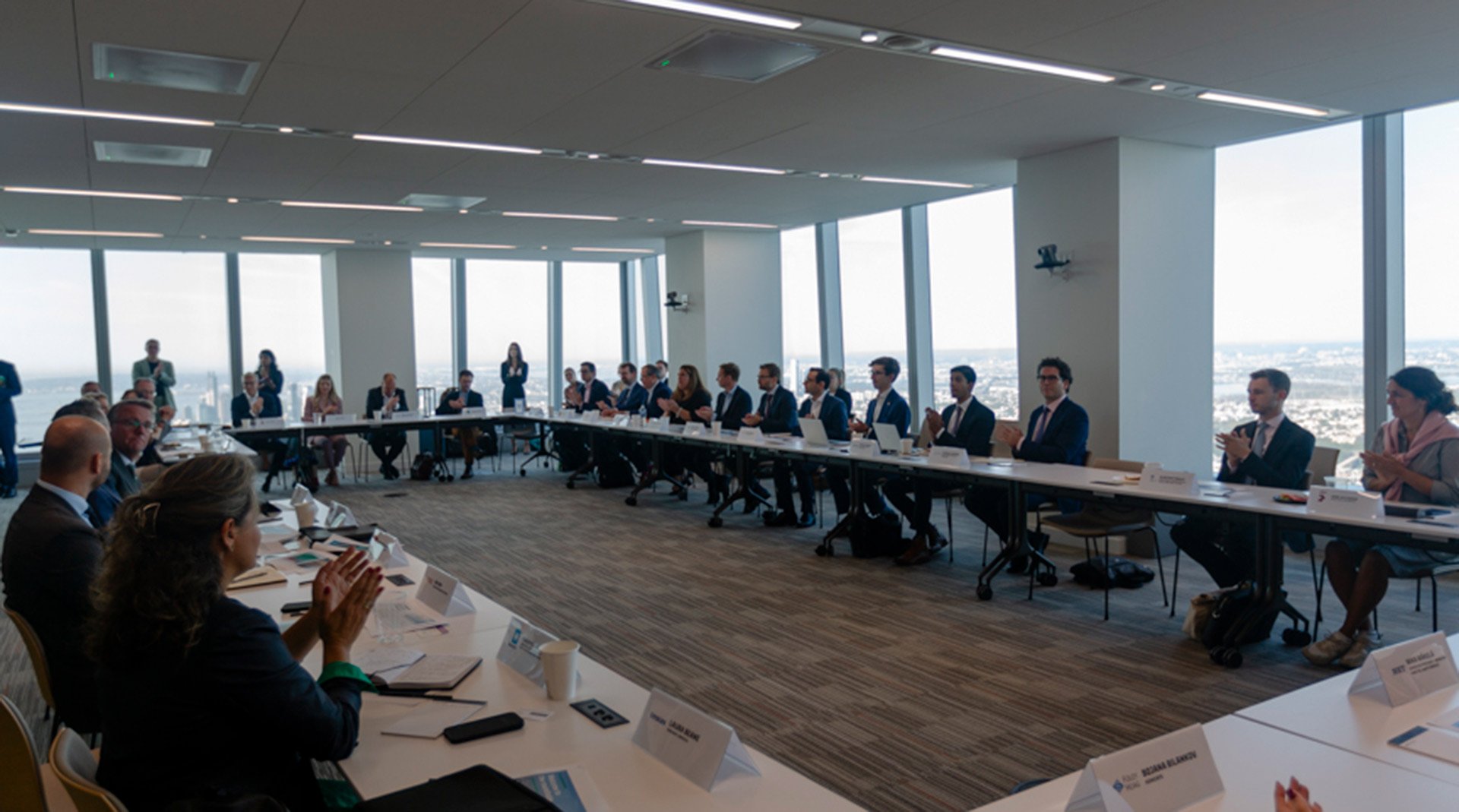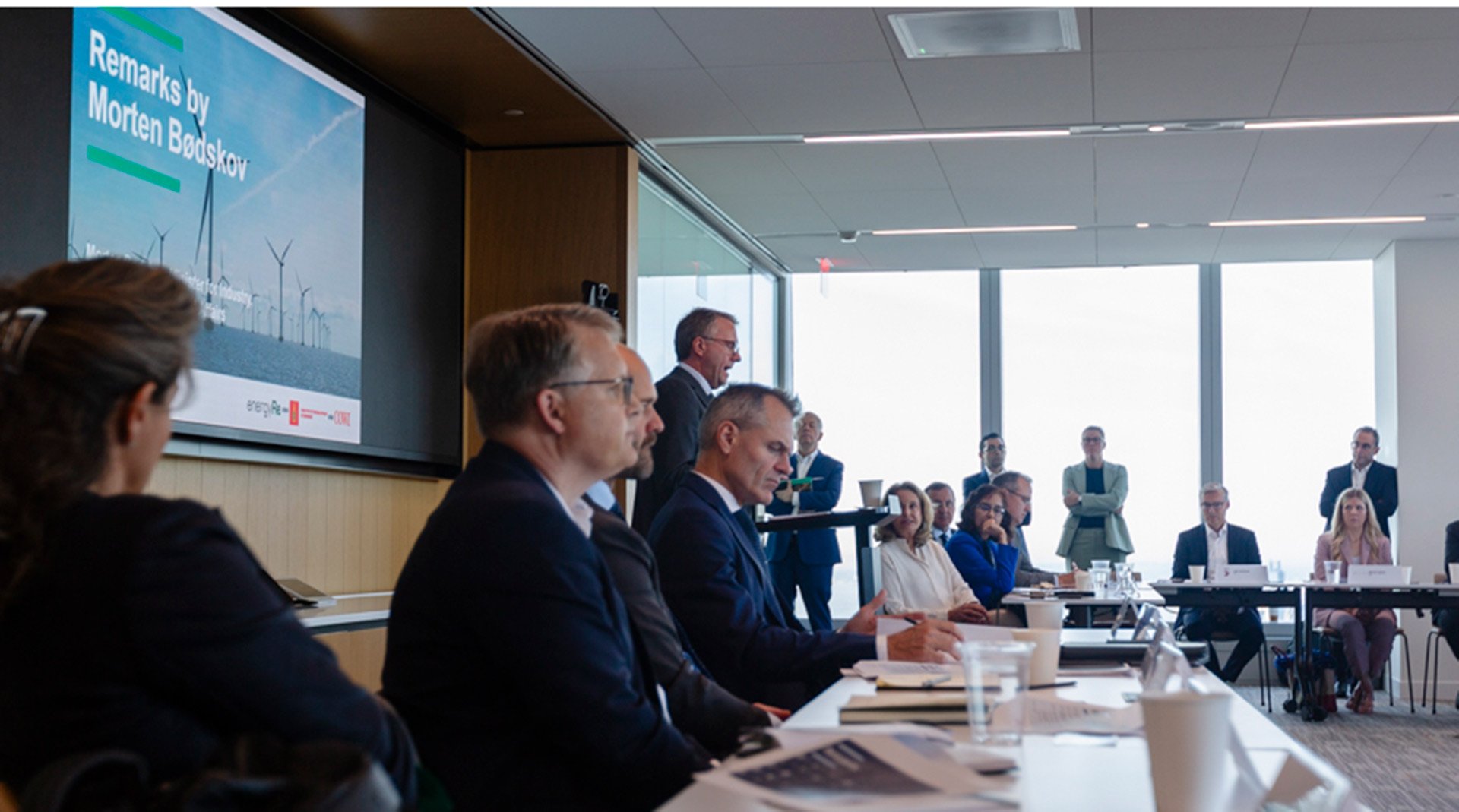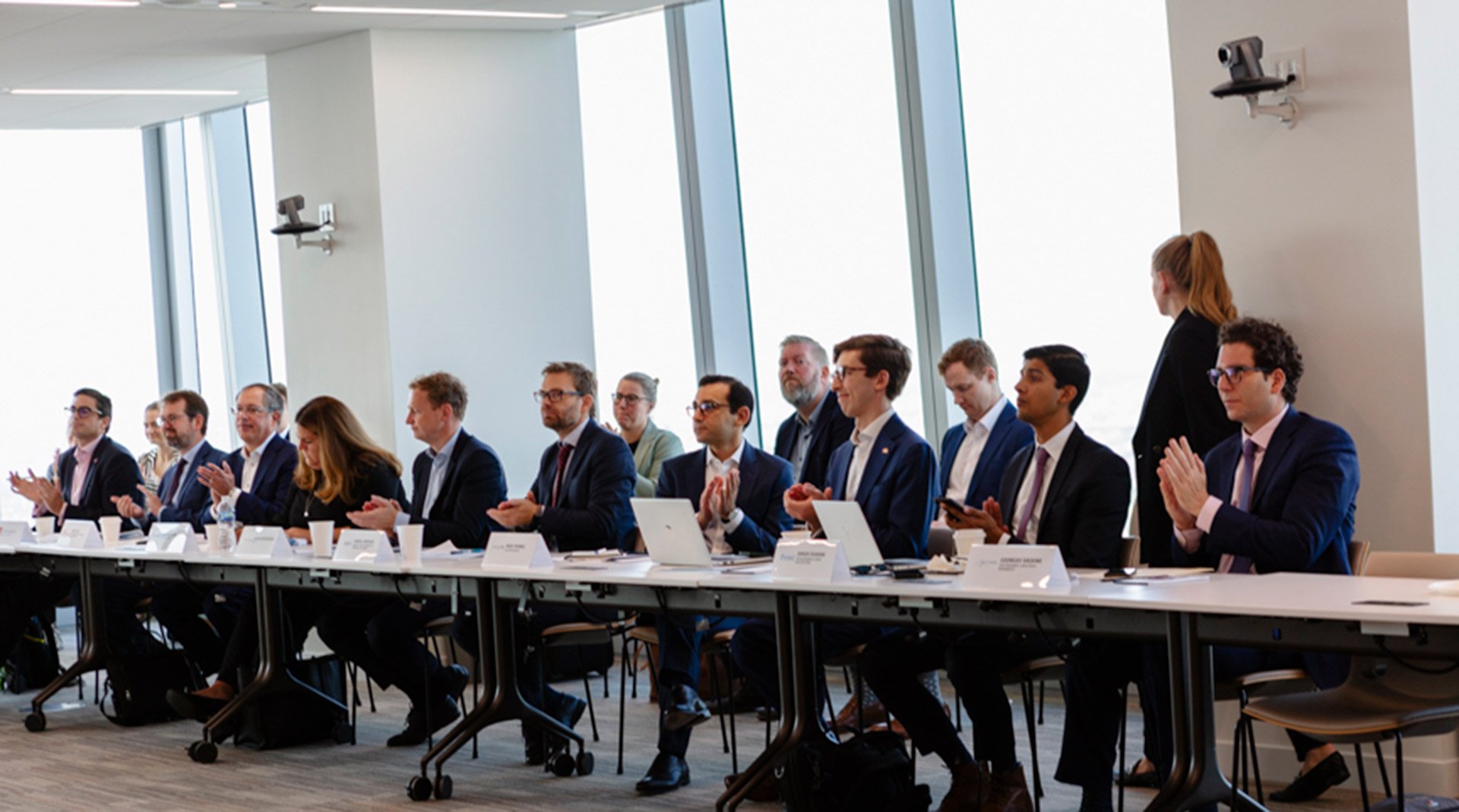One year into the Inflation Reduction Act: Here’s what we know
25.09.2023
In a soaring, low-carbon high-rise on the 82nd floor, 300 meters above the bustling streets of New York City, a select group of energy leaders gathered during New York Climate week 2023 to discuss the future of sustainable solutions and the green transition one year into the Inflation Reduction Act. Here is what we learned.
Inflation Reduction Act: one climate bill to rule them all.
A little over a year ago, on August 16, 2022, President Biden put pen to paper and officially signed the Inflation Reduction Act (IRA) into law. This monumental legislation marked the most significant investment in clean energy and climate action in US history. The IRA stands as a transformative piece of legislation, playing a significant role in enabling the United States to make substantial progress toward its climate objectives while bolstering energy security.
Now, one year into the IRA, it is time to review its’ impact on the renewable energy and green hydrogen markets. And what better occasion to do just that than during Climate Week New York, where some of the largest developers and investors within the green energy market are present?
COWI, together with energyRe and the Ministry of Foreign Affairs in Denmark gathered key players to discuss learnings from working with the IRA as well as barriers and future potential that can help us accelerate the green transition.

Progress trumps doubt.
Despite the intricacies and doubts in the current offshore wind auctions and overall sustainability goals, progress and development remain at the forefront with the market. Today, there are challenges in obtaining domestic content for achieving additional credit, particularly in a supply chain constrained by material shortages and major grid upgrades. The transferability of successful schemes is therefore a point of interest, with hopes for a smoother path for green hydrogen projects.
Although there is progress in how the IRA is used, it is important that companies comply with EU certifications (RED II and III) to facilitate export, especially for industries like shipping. Furthermore, the concept of "additionality," with a focus on hourly measurements, is critical. But although these points are considered by major energy players, and questions as to how we go about it all still remains, it is clear that we are moving in the right direction.

Collaboration must grow stronger.
Overall, it is important to highlight the demand generated by the IRA. But it is equally important to acknowledge that several factors still impede the build out of a green energy- and hydrogen market. These include project delays due to for example the absence of PTC support and the fact that bids are priced on assumptions from the IRA. However, if these turns out to be useless, the business case collapses.
For foreign energy players, there is further a challenge in using non-US steel for offshore wind turbines and a lack of government support to bridge financial gaps for developers. As such, for projects to be materialized, we need a much stronger collaboration across sectors, borders and industries based on win-win models that de-risks investments.
From the Round Table it was also clear that getting and building up an offshore wind supply chain from scratch in the U.S. is difficult and will require some initial support for the first project(s), and also that U.S. states in particular on the east coast need to collaborate for common first project(s) approach across the states.

Building a brand-new industry also requires collaboration.
Seeing as neither green energy or green hydrogen – the latter in particular – is as settled large-scale industries as for example oil and gas, considerable initial costs are needed to build this sector up from nonexciting infrastructure in the US, e.g., new factories and converting ports to be hydrogen ready.
Doing so can’t be an individual responsibility, but rather requires a strong cooperation between public and private as well as potential governmental export and investment funds to mitigate inflation and de-risk projects.

From the Climate Week in New York, we have learned that the journey towards a sustainable future is recognized as a collective effort that requires continuous dialogue and collaboration. This also holds true, if the potentials of the IRA are to benefit more companies in the future.
Get in contact

Jan Behrendt Ibsø
Group Senior Market Director
Energy International Management, Denmark
Tel:
+45 41 76 05 47
jbis@cowi.com